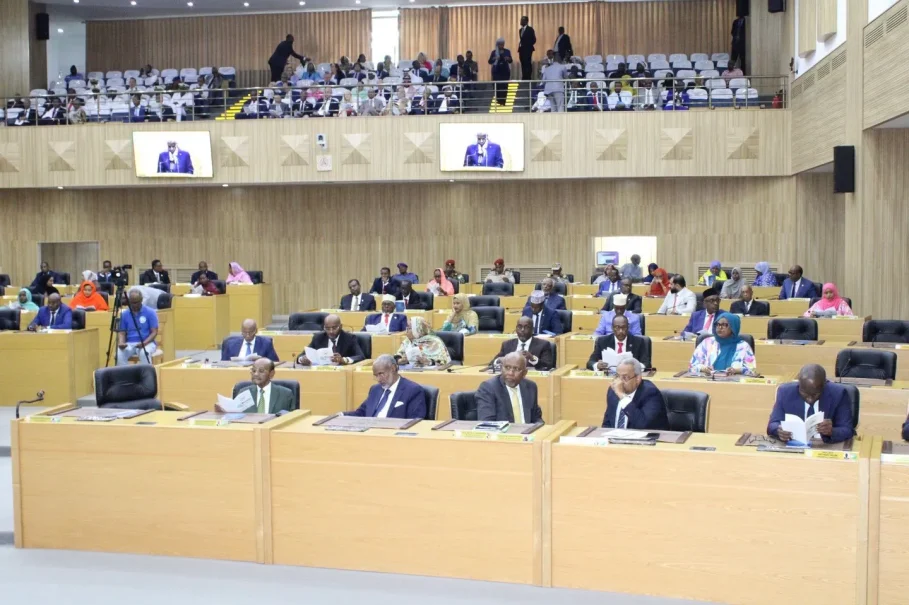The Financial Action Task Force (FATF) has officially removed Nigeria from its “grey list” of countries under increased monitoring, citing strong political will, improved inter-agency coordination, and comprehensive reforms to strengthen the nation’s financial crime prevention framework.
The decision was announced during the FATF plenary meeting held on October 24, 2025, in Paris, France, where the organisation’s President, Elisa de Anda Madrazo, praised Nigeria for demonstrating “strong political will and inter-agency collaboration” in addressing deficiencies in its anti-money laundering and counter-terrorist financing (AML/CFT) system.
Join our WhatsApp Channel
Madrazo also praised Nigeria’s efforts in improving beneficial ownership transparency, and strengthening supervision of the non-financial sectors, particularly real estate agencies one of the areas FATF had previously flagged as high-risk.
Madrazo added that the presence of three Nigerian ministers at the week-long plenary underscored the government’s seriousness in the global fight against illicit financial flows. The Nigerian delegation included the Attorney-General of the Federation and Minister of Justice, Prince Lateef Fagbemi (SAN), who chairs the Interministerial Committee on Anti-Money Laundering/Countering the Financing of Terrorism/Proliferation Financing (AML/CFT/PF), along with Minister of Finance, Wale Edun, and Minister of Interior, Olubunmi Ojo, who serve as alternate chairs.
Nigeria was first placed on the grey list in February 2023, following FATF’s assessment that the country’s financial system had strategic gaps that allowed risks related to money laundering and terrorism financing.
Over the past two years, Nigerian authorities – led by the Nigerian Financial Intelligence Unit (NFIU), Economic and Financial Crimes Commission (EFCC), Central Bank of Nigeria (CBN), and the Independent Corrupt Practices and Other Related Offences Commission (ICPC) have implemented sweeping reforms to close those gaps.
In its statement, FATF noted that Nigeria had “substantially completed its action plan,” improving the effectiveness of its AML/CFT framework through stronger intelligence sharing, enhanced supervision of financial institutions, and enforcement of beneficial ownership disclosure requirements.
READ ALSO : Dangote to List Refinery on Stock Market as Capacity Expansion Targets 1.4m Barrels Daily
The organisation confirmed that a recent on-site review in Nigeria validated these improvements, paving the way for the country’s delisting.
Reacting to the development, President Bola Ahmed Tinubu hailed the FATF decision as a major milestone in Nigeria’s reform agenda, describing it as “a testament to our commitment to financial transparency and global standards.” The President pledged that his administration would continue to consolidate the gains achieved to ensure the country does not relapse into increased monitoring.
Similarly, the CBN, in a statement, said the removal from the grey list reflects “renewed confidence in Nigeria’s financial system,” adding that it will further enhance the integrity of the country’s financial markets and improve access to global banking relationships.
Experts say Nigeria’s delisting from the FATF grey list will boost investor confidence, ease international trade and remittance flows, and reduce restrictions imposed by foreign banks wary of regulatory risks.
It is also expected to enhance the country’s reputation in the global financial system and support the Tinubu administration’s broader efforts to attract foreign investment and strengthen economic governance.
According to FATF, Nigeria’s exit was achieved alongside South Africa, Mozambique, and Burkina Faso, which also met the requirements for delisting. The global financial watchdog, however, urged all countries to sustain reforms and continue building institutional capacity to prevent future vulnerabilities.
With the FATF’s decision, Nigeria has reaffirmed its place as a key player in the international fight against illicit financial flows, signalling a renewed era of transparency, accountability, and compliance across its financial sector.
Amanze Chinonye is a Staff Correspondent at Prime Business Africa, a rising star in the literary world, weaving captivating stories that transport readers to the vibrant landscapes of Nigeria and the rest of Africa. With a unique voice that blends with the newspaper's tradition and style, Chinonye's writing is a masterful exploration of the human condition, delving into themes of identity, culture, and social justice. Through her words, Chinonye paints vivid portraits of everyday African life, from the bustling markets of Nigeria's Lagos to the quiet villages of South Africa's countryside . With a keen eye for detail and a deep understanding of the complexities of Nigerian society, Chinonye's writing is both a testament to the country's rich cultural heritage and a powerful call to action for a brighter future. As a writer, Chinonye is a true storyteller, using her dexterity to educate, inspire, and uplift readers around the world.













